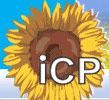
|
|
|
|
|

|
|
Tamara Podvysotska speaking about community mobilization
|
|
|

|
|
Mariya Osipova describing project achievements
|
|
|
On February 3, 2005, a round table took place in the House of Scientists, Odesa, to discuss the outputs of the Water Supply and Sanitation Project implemented in the village of Velykoploske, Velyka Mykhaylivka rayon in Odesa oblast with the financial support of the UK Department for Environment, Food and Rural Affairs (DEFRA).
The round table was attended by the Project Working Group members from Velykoploske and Odesa Oblast Rural Advisory Service, representatives from Odesa Oblast State Administration, Ovidiopol and Belhorod-Dnistrovskiy rayons, and Institute for Rural Development experts. The event was followed by a “press club” for journalists.
Opening the round table, Maria Osipova, President of NGO “Rural Development and Legal Unit”, said water supply was a great problem for Southern Ukraine and Odesa oblast, in particular. “One of the reasons is that water conduits, built many years ago, currently are not working without continuous investment and proper management. In most rayons of Odesa oblast people have to use water from groundwater wells which does not meet sanitary standards”, she said.
A Velykoploske villager added that he had “tested in practice” the quality of water from a local well. Having had jaundice he realised that he should take up water supply “by own strength”. The above mentioned Project proved very useful for him. According to the Project, clean drinking water would go to the village from 200 metres beneath the surface. The man did not wait for the pipeline to be laid to his house, he trenched over 200 metres of ditch and laid the pipeline to his dwelling by himself. “Now I realise that I am about to pay any amount for water in my house. This is not only for health but also for comfortable domestic life: running water, sewer, laundry washer etc. And the key is to make the community tie up”, he added.
Tamara Podvysotska, Deputy Head of the Main Department for Economy and European Integration of the Odesa Oblast State Administration, stated that the main challenge for the project had been to organise the village community to solve the problem. People had used to the situation when “somebody” had to supply them with drinking water. „Today the community members realise that solving problems of their everyday life, water supply, and health is only possible with everyone’s active participation”, she added.
The round table participants also discussed the project’s development prospects. Its financial sustainability was identified as a key challenge, inasmuch as most people had already used not to pay for water. Therefore, there is an absolute need for dissemination of the project information and consumer culture development in the rural areas. Volodymyr Orlov, the village council head, said that according to feedback from the villagers, only 70 per cent of them agreed to pay for water thus increasing its price for the users. So, it was planned to continue the project awarenness campaign. Oleksandr Lozytskiy, Head of the Velyka Mykhaylivka Rayon Rural Advisory Service, advised initiators of similar projects in other regions to wage more massive campaign and not only work with or through activists but convene community meetings more often in order to discuss the project progress. „First of all, you should stir up people! Once mobilised they will approach directors of enterprises and involve other people on their own initiative. In this case not only working group members will talk, call, demand and ask, but the entire community will be involved in the process as its main driving force”, one of the project managers said.
After the round table discussions the Working Group members, experts and officials gave a press conference for the oblast electronic and print media and described perspectives of project extension to other regions.
|
|




